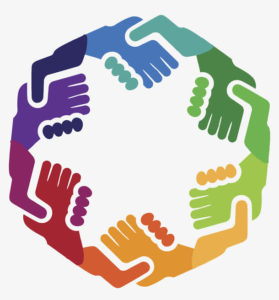Cooperative learning is an education approach which divides students into small groups and lets them work together and learn from each other. It requires every member in each group being interdependent, making contributions and taking responsibility. In the cooperative learning process, educators are not directly teaching; instead they are observing students and making adjustments when they see the learners make “off-topic behaviors” (laughter, loud noise, etc.) (Zook, 2018).
Cooperative learning is effective when students have already focused on the materials, so this approach is not a good choice to begin the class with. It is better for the educator to use cooperative learning techniques during the middle of the class, especially when students are starting to show signs of distracted behaviors. The formats of cooperative learning are various, such as debate, discussion, and project (Zook, 2018).

For me, I think cooperative learning can be applied in our group’s topic – Artificial Intelligence (AI). Cooperative learning is a good application of the constructivism learning theory, because it allows students to listen and learn from other members’ perspectives and helps students gain deeper understanding of the topic (West, 2018). In our blueprint, the learning outcome 4, “evaluate from different views”, requires students to learn from each other in order to see both positive and negative views towards AI. Then, students can come up with their own thoughts and feelings whether or not to support the introduction of AI and give reasons/evidences to support their opinions. The targeted learners for our lesson plan would be middle school students. Research shows that having cooperative learning in middle school can improve students’ academic performance, motivation (Johnson, Johnson, Roseth & Shin, 2014) and a positive social relationship (Van, & Roseth, 2018). So, I think cooperative learning should be considered as a strategy for teaching in our topic.
Reference
Johnson D. W., Johnson R. T., Roseth C. J., Shin T. S. (2014). The relationship between motivation and achievement in interdependent situations. Journal of Applied Social Psychology. 2014;44:622–633. doi: 10.1111/jasp.12280.
Van Ryzin, M. J., & Roseth, C. J. (2018). Cooperative Learning in Middle School: A Means to Improve Peer Relations and Reduce Victimization, Bullying, and Related Outcomes. Journal of educational psychology, 110(8), 1192–1201. https://doi.org/10.1037/edu0000265
West, R. E. (2018). Foundations of Learning and Instructional Design Technology: The Past, Present, and Future of Learning and Instructional Design Technology (1st ed.). EdTech Books. Retrieved from https://edtechbooks.org/lidtfoundations
Zook, C (2018, October 18) What Is Cooperative Learning and How Does It Work? [blog post]. Retrieved from https://www.aeseducation.com/blog/what-is-cooperative-learning-and-how-does-it-work
Hi Song,
Thanks for sharing your research on cooperative learning and how you plan on using it for your AI learning resource with us! In the last semester of my major, a lot of our program specific courses were heavily reliant on the cooperative learning model. We had many collaborative activities such as debates , discussions and projects and I found that I learned more from my peers than I did from the lectures. This is not to say that the lectures were not informative, but rather that my learning experience was enhanced by the thoughts and experiences brought forth by my colleagues.
Regarding your topic of artificial intelligence (AI), I completely agree that cooperative learning will be a suitable approach because of the differing opinions around AI (this, in my opinion, is a much more effective alternative to sitting in a lecture about AI). However, one area of concern I have is around your chosen student demographic. Having been required to study about AI and its application in healthcare for my program, I think it is a very challenging concept to grasp for those who have either limited or no background in technology and the various work industries. For example, if I wanted to see how AI can be realistically used in the ER setting, it will be very challenging for me to do so without first understanding how the ER works (e.g. understanding of provider workflows, privacy requirements for patient information, system interoperability etc.). Therefore, as in-depth knowledge of technology and various work industries can be more limited among middle school students when compared to older students (e.g. secondary or post-secondary students), I am wondering if this will have any impact on proposed learning outcomes? Or are the learning outcomes more generalized in that your group only requires learners to understand the basics surrounding AI technologies?
Looking forward to seeing your project!
Victor
Hello song,
thank you for sharing your post. Glad to read it.
I chose the same theme as you, but I didn’t think there were other possibilities for this theme. It is true that group cooperation is likely to be reduced by students’ “extraneous words”, thus failing to achieve its own learning effect. This is what we should consider. It is also a problem that educators should solve most. I think you need to think about more possibilities in AI. For example, user experience, or how to collect feedback in case of incomplete recognition.
Thank you again for sharing, I have benefited a lot.
-Victoria